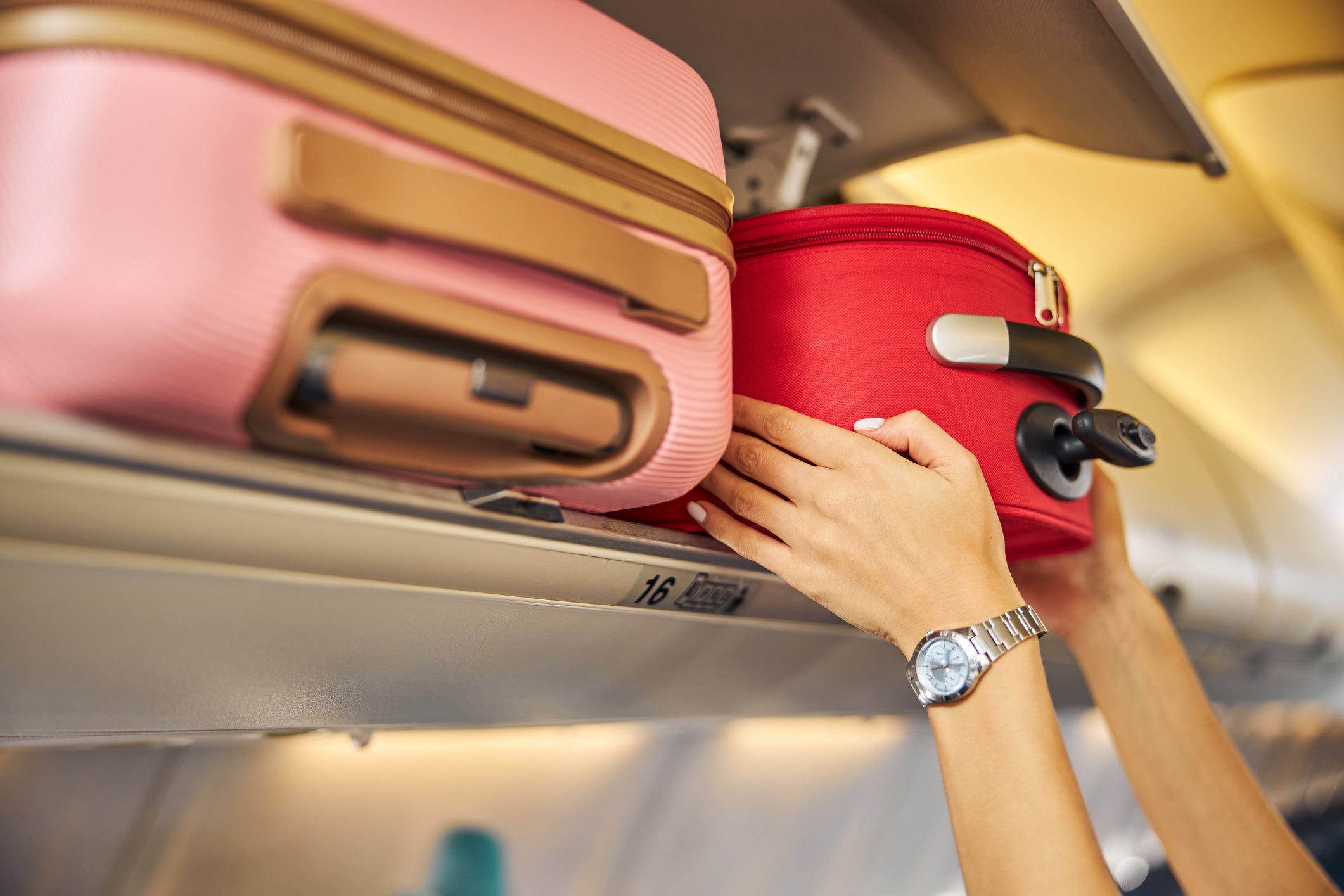What’s the safest way to take a kilt to a wedding?
Simon Calder tackles your questions about hand luggage, Eurostar changes, when to book a trip to the Canary Islands, and taking a ‘gap month’ to travel the world


Q I’m flying to a wedding and taking a kilt with me. I wouldn’t want to lose the kilt, so I’m trying to ensure I take it as hand luggage. It’s bulky but fits in a standard roll-along cabin case. The journey involves connecting flights with British Airways and Swiss. However, with flights being so busy, I’m concerned that they’ll take the trolley case off me at the gate and put it in the hold at some point. With connecting flights, is that riskier than just checking it in properly at the beginning?
Name supplied
A Whenever you check in baggage, assume you will never see it again. While it is highly likely your checked luggage will reach your destination on the same flight as you, cabin baggage offers more certainty. Connecting flights, where you are relying on the luggage system to move your bag from one hold to another, are particularly prone to misrouted baggage. So hand luggage is definitely the way to go.
Yet as you point out, after the worst of the coronavirus pandemic, many flights are full to the brim. Fitting all the cabin baggage on board is an increasing concern. British Airways has a very generous policy that allows every passenger to bring two pieces of hand luggage, each weighing up to 23kg. To try to manage the possible congestion on busy flights, the airline often invites passengers in advance to check in cabin baggage free of charge. You will clearly not want to avail of this, and should instead take the case containing the kilt through airport security and to the gate.
Every airline reserves the right to take cabin bags away at the boarding gate and place them in the hold. The luggage is loaded directly onto the plane, rather than entering a complex airport baggage system, so it almost always turns up on the baggage carousel at the other end. But because you are connecting “airside” to your next flight, going landside to fetch the bag is the last thing you want to do. So if you are asked to surrender the kilt container, explain quietly to the staff why that would present a problem. They can pick a different passenger instead.
Finally, it strikes me that the best way to ensure the kilt remains with you during the journey could be to wear it.

Q You wrote that Eurostar has cut 30 per cent of its capacity because of Brexit. Nothing to do with Eurostar cutting costs because of financial difficulties, then?
Lindsay M
A Eurostar, the train operator from London St Pancras to Paris, Brussels and Amsterdam, is currently offering about 30 per cent fewer seats than it did before the coronavirus pandemic. The cause: lack of space at the London hub.
When the rail terminal opened in 2008, the idea that the UK might leave the European Union was not even considered. St Pancras was designed on the basis that passport checks would be swift: before Brexit, officials were only obliged to check that a passport was genuine and that it matched the traveller. Now, because the UK insisted that a hard EU border be established in London NW1, every transaction takes at least 15 seconds longer, because French frontier police must stamp every British passport.
We know all this because the outgoing chief executive, Jacques Damas, told it to the transport select committee. His letter to MPs left no doubt about the impact leaving the European Union has had on rail travel between London and continental Europe. Post-Brexit border arrangements have reduced capacity at St Pancras by almost one-third – forcing Eurostar “to charge higher prices to our customers”, he said.
While Eurostar was probably more financially damaged by the coronavirus pandemic than any other European transport company, its owners have deep pockets and the enterprise has solid foundations. In an ideal world, it would be seeking to grow the market. But as things are, Eurostar is allowing the market to respond to the diminished supply of seats by making more money from the trains it can run. Next June, the rail firm will reduce choice still further by closing its link with Disneyland Paris – ahead of deeper EU checks on passengers arriving from “third countries”, as the UK has now become.

Q I recall that you went on a “gap month” a fair while ago. Can you remember where you went and what you did, and whether something similar is feasible today?
Siobhan H
A At the start of November 2006 I embarked on a venture that addressed the problem of “so many places – so little time”. I sought to compress many of the great experiences of a typical gap year into just 30 days. It was divided into a week in each of Asia, Australasia/Pacific, South America, and north Africa/Europe.
The first week took in the cities of Dubai, Mumbai and Bangkok, followed by a lovely trip across southern Thailand, taking in Krabi, Phi Phi Island and Phuket, and ending in Singapore.
Week two began in Darwin in Australia’s deep north, where raw nature is surprisingly accessible. It continued with the Sydney Harbour Bridge climb. Next, thrill-seeking in Queenstown, New Zealand, including my one and only bungee jump, followed by Tahiti and Easter Island in the South Pacific. Tahiti was a letdown; Easter Island was the highlight of the trip.
The handsome Chilean capital, Santiago, was the start of week three. I then explored the Lake District of Chile, and took the classic overland journey through the Andes to Bariloche in Argentina. From the endless energy of Buenos Aires, I sailed across the River Plate to Sacramento de Colonia in Uruguay and took a bus to the capital, Montevideo.
The final week began with a punishing overnight flight to Madrid, where I encountered the only significant flight delay (and then only four hours), to Casablanca, followed by train journey to Tangier, a ferry to Spain, a train to Paris, and finally a tiny Channel hop from Caen in Normandy to Shoreham in Sussex.
Oddly, this last link is, I think, the only part of the trip that could not be replicated today. The overall fare I paid, £2,400, is probably still achievable; the itinerary was expertly put together by Travel Nation.
Were I to schedule another circumnavigation, I would take advantage of the possibilities of remote working and make it at least a gap-three-months, incorporating Central Asia and much more of Africa. And now you’ve started me thinking …

Q When would you recommend booking a July 2023 holiday to Gran Canaria?
Ian M
A The answer depends on the departure date next July, and also where in the UK you will be travelling from. That is because school holiday patterns differ from one nation to another. Schools in Scotland and Northern Ireland tend to break up at the end of June, making all of July peak season. Some Scots travel south to seek flights at a lower cost than those departing from Edinburgh, Glasgow or Prestwick – often opting to fly from Manchester or Newcastle.
The extra demand pushes up prices, though not to Scottish levels, and eats into capacity. So for departures from anywhere in the northern half of the UK at any time in July, my recommendation is that you book no later than January.
Right now you will get the widest choice, but if price is your key parameter, discounts during the post-Christmas sale could deliver the best value.
In the first half of July, demand from airports south of Manchester, Liverpool and Leeds Bradford is not so intense. So if you are planning a trip at the start of July and beginning from Wales, the Midlands or southern England, you should benefit from low prices – with a fair chance of late deals.
By late July, the summer surge will be under way from all parts of the UK. Again, booking now will give you the widest range of options – and maximise your anticipation of the holiday, which is an important component of the overall travel experience.
Yet if, like me, you also value flexibility, you could wait till late. There is a chance some extra flights could be added, though the capacity of holiday accommodation is a limiting factor. I would happily start planning in May, knowing that there will always be plenty of connecting flights via the Spanish mainland, and rooms available in the island’s capital, Las Palmas.
Email your question to s@hols.tv or tweet @simoncalder
Join our commenting forum
Join thought-provoking conversations, follow other Independent readers and see their replies
Comments
Bookmark popover
Removed from bookmarks